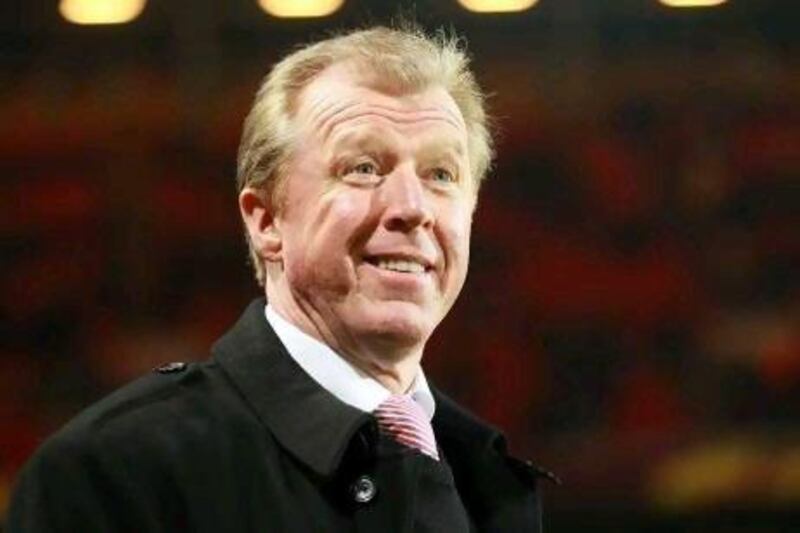Nobody knew where the FC Twente coach Steve McClaren had disappeared to during his side's 4-1 victory at Vitesse Arnhem last weekend.
The English coach, in his second spell at the club, was in the players' tunnel viewing the television replay of a foul. He returned to tell the Arnhem coach that his player was innocent and should not worry.
To McClaren, it was a sporting gesture. But the Dutch Football Association consulted Fifa on whether it was appropriate behaviour.
Twente fans are conditioned to the eccentricities of McClaren, 50. He returns to his bench two minutes after the commencement of the second half, a superstition rooted, he says, in a late return that was greeted by a goal. Such actions irritate some, but McClaren is hugely popular in Enschede, a city of 150,000 on the border with Germany.
Twente may be fourth in the Eredivise, but they are just three points off leaders PSV Eindhoven with a game in hand. They also boast the best goal difference in the league, a figure boosted by the win at seventh-placed Arnhem.
If results go their way this weekend, Twente could top the league for the first time this season.
Twente have also reached the last 16 of the Europa League, where they will meet Shalke.
Life at Twente is a happy fit for the Englishman who was pilloried as "the wally with the brolly" as his country's national team coach before accepting an offer in 2008, on the advice of Bobby Robson, to manage the first-division Dutch side.
McClaren was not lucky with England, but he inherited a solid squad at Twente built by the current PSV coach, Fred Rutten, a Twente legend as a player. Rutten left for the brighter lights of Schalk, with McClaren inheriting a team who had finished fourth and reached the Champions League qualifiers.
The ambitious chairman Joop Munsterman oversaw an increase in stadium capacity from 13,000 to 30,205 by 2011. The crowds filled it and Twente, no longer mid-table regulars, became title challengers in one of Europe's most competitive leagues.
"McClaren filled in the gaps in Rutten's team," said Thijs Slegers, a writer for Voetbal International. McClaren finished second in his first season and then won Twente's first title, in 2010.
That success re-established his battered reputation as he became the first English coach to win a title outside his home country since Robson two decades earlier.
McClaren quickly accepted a more lucrative offer from Wolfsburg in the Bundesliga.
"There was sadness when he departed, but relief that some of the players he'd bought would no longer feature," Slegers said.
"McClaren is perceived to be a good coach, a good tactician who knows how to form a winning team, but he had a lousy record with buying players.
"In his first spell at Twente he bought a useless player from Iran, a guy from Azerbaijan who did nothing, a South African who was very poor and a Brazilian who was nowhere near good enough for the Dutch first division."
One of McClaren's best signings was the sport psychologist Bill Beswick, who had been with him through his time at Manchester United, Middlesbrough and England.
Beswick worked with McClaren in Germany, but it did not work out, nor did it as his next job in charge at Nottingham Forest in June 2011. He resigned after 10 games and returned to Enschede last month.
Slegers said: "As well as being a good coach, he's popular because he's a normal guy who comes across well in interviews, unlike Co Adriaanse [his predecessor] who thinks he's a god."
If McClaren wins a second title at Twente, he might be perceived as Adriaanse wishes he had been.






